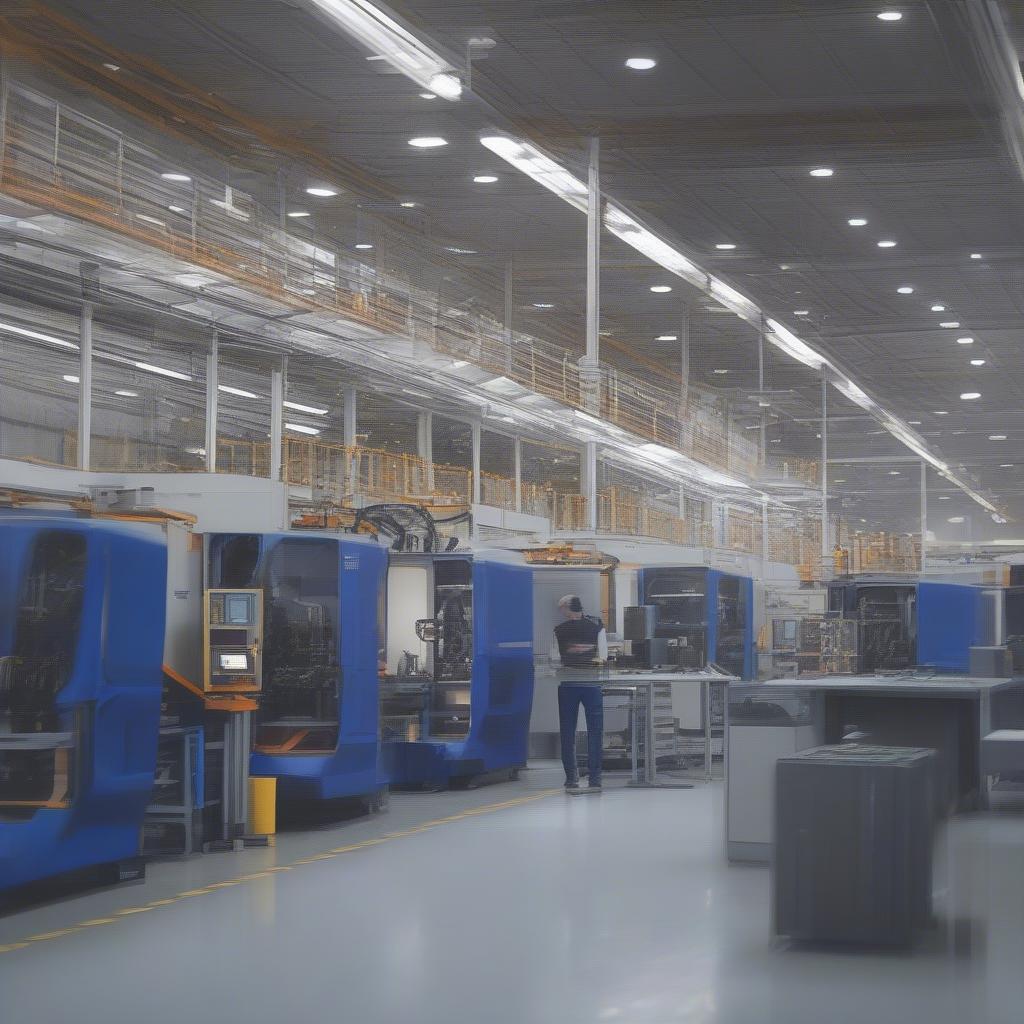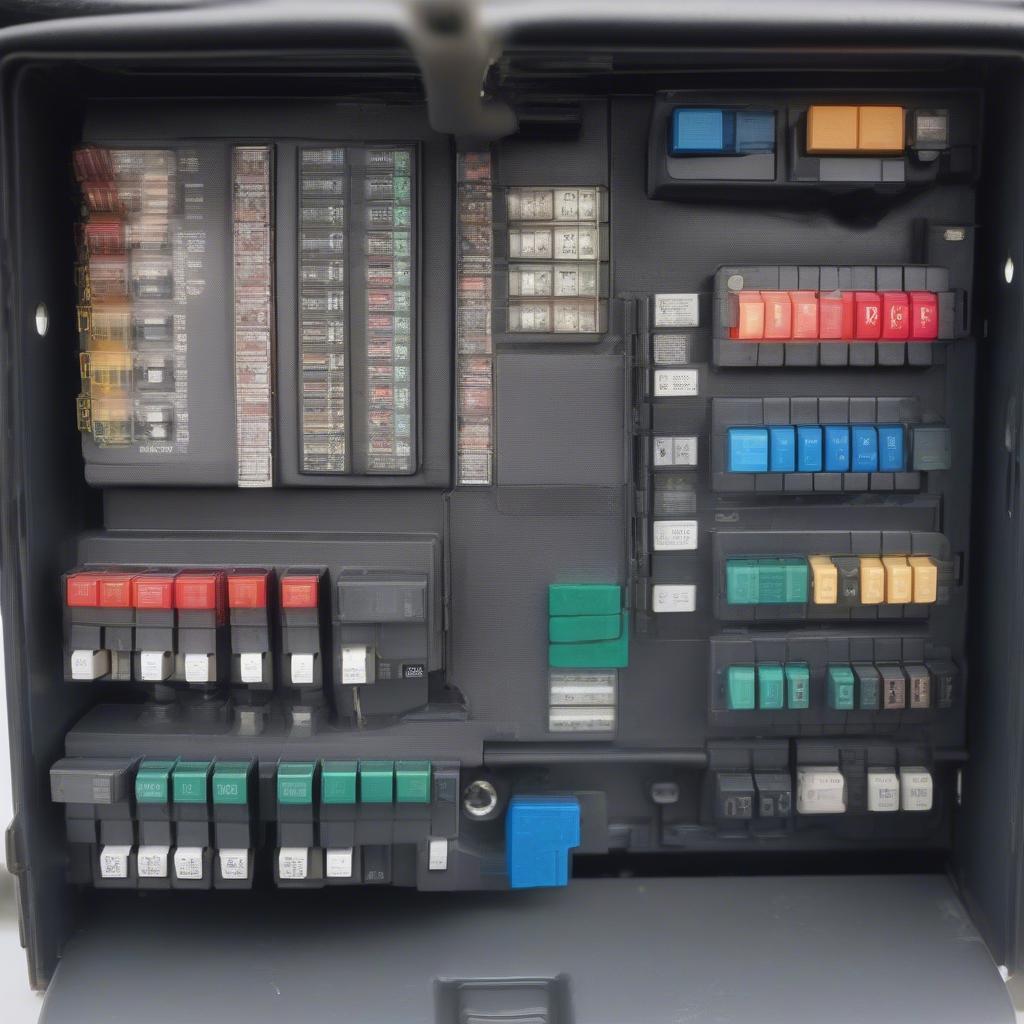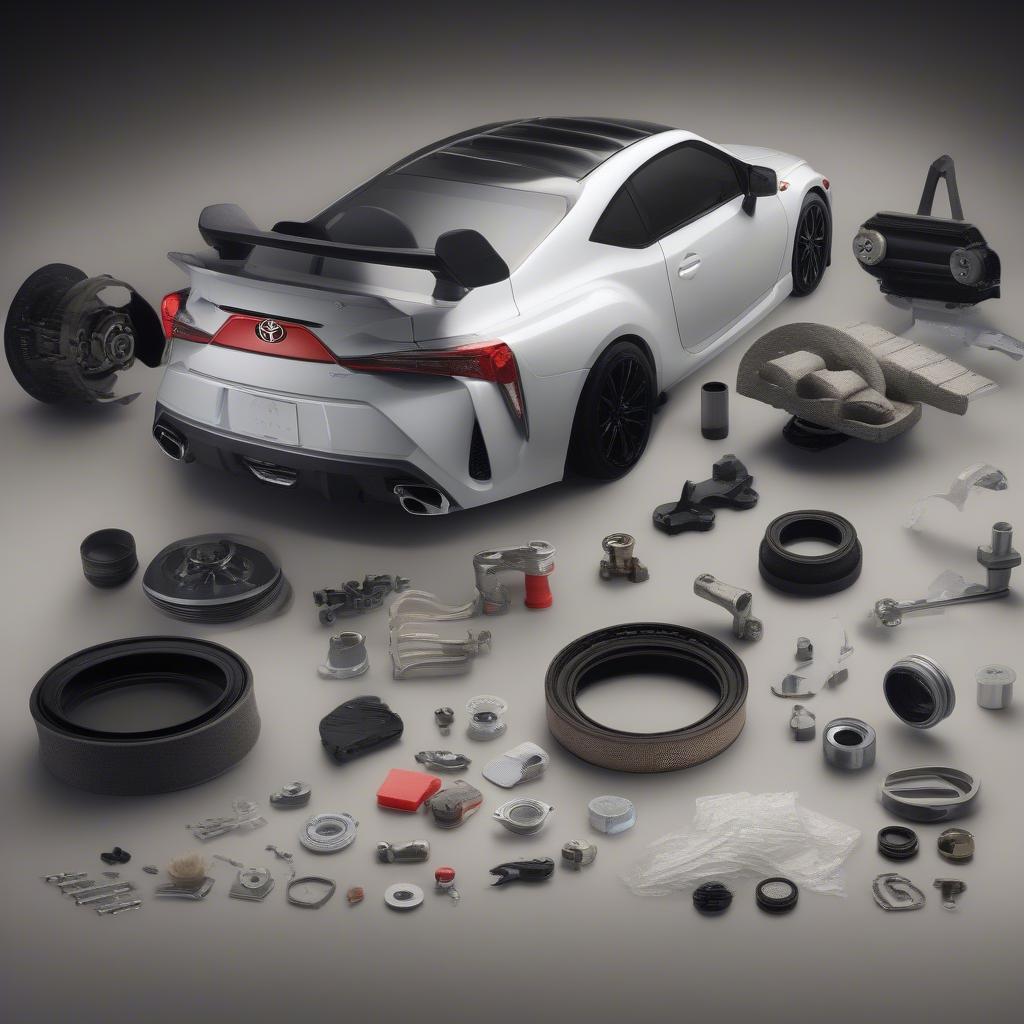Finding reliable Mechanical Components Suppliers is crucial for any business involved in manufacturing, engineering, or repair. Whether you need gears, bearings, fasteners, or other essential parts, choosing the right supplier can significantly impact your product quality, production timelines, and overall success. This article will delve into the key factors to consider when selecting mechanical components suppliers, ensuring you make informed decisions that benefit your business.
Key Considerations When Choosing Mechanical Components Suppliers
Choosing a supplier isn’t just about price; several critical factors play a role in ensuring a successful partnership. Quality, reliability, and compatibility are paramount.
Quality Certifications and Standards
Ensure your potential suppliers hold relevant quality certifications like ISO 9001. This demonstrates their commitment to maintaining consistent quality management systems. Look for suppliers who adhere to industry-specific standards for the components you require.
Production Capabilities and Capacity
Understanding a supplier’s production capabilities is vital. Can they meet your volume demands? Do they have the necessary equipment and technology to produce the components to your specifications? A supplier with adequate capacity can ensure timely delivery and prevent production bottlenecks.
Experience and Expertise
 Experience of mechanical components suppliers
Experience of mechanical components suppliers
A supplier with extensive experience in your industry likely understands your specific needs and challenges. Their expertise can be invaluable, offering technical support and guidance throughout the process.
Evaluating Supplier Reliability and Communication
Beyond production capabilities, assess the supplier’s reliability and communication practices.
Delivery Performance and Lead Times
Consistent and timely delivery is critical. Inquire about the supplier’s delivery performance history and typical lead times. A reliable supplier will have established processes to ensure on-time delivery.
Communication and Customer Service
Effective communication is essential for a smooth partnership. A responsive supplier who provides clear updates and addresses concerns promptly can save you time and headaches.
Focusing on Component Compatibility and Cost
Component compatibility and cost are crucial considerations when selecting a supplier.
Material Specifications and Compatibility
Ensure the supplier’s components meet your required material specifications and are compatible with your existing systems. This prevents costly rework or compatibility issues down the line.
Pricing and Payment Terms
Compare pricing from different suppliers, but don’t solely focus on the lowest price. Consider the overall value, including quality, reliability, and service. Negotiate favorable payment terms that work for your budget.
Navigating the Global Landscape of Mechanical Components Suppliers
The global marketplace offers a vast selection of suppliers.
Sourcing Domestic vs. International Suppliers
Weigh the pros and cons of sourcing domestically versus internationally. Domestic suppliers might offer shorter lead times and easier communication, while international suppliers might offer lower costs.
Understanding Logistics and Import/Export Regulations
If sourcing internationally, familiarize yourself with relevant logistics and import/export regulations to avoid delays or unexpected costs.
 Logistics process of mechanical components suppliers
Logistics process of mechanical components suppliers
Building Long-Term Partnerships with Suppliers
Building strong relationships with your suppliers can lead to numerous benefits.
Collaboration and Continuous Improvement
Foster a collaborative relationship with your suppliers to drive continuous improvement. Open communication and feedback can help optimize processes and improve product quality.
Contract Negotiation and Management
Establish clear contracts that outline expectations, responsibilities, and performance metrics. Effective contract management ensures a mutually beneficial partnership.
Conclusion
Choosing the right mechanical components suppliers is a critical decision for any business. By considering the factors outlined in this article, you can identify reliable partners who deliver high-quality components, meet your production needs, and contribute to your overall success. Investing time in thorough research and evaluation will ultimately pay dividends in the long run, ensuring a smooth and efficient supply chain for your business. Remember to carefully evaluate potential mechanical components suppliers based on quality, reliability, compatibility, and cost to make informed decisions that support your business goals.
 Contract with mechanical components suppliers
Contract with mechanical components suppliers
FAQ
- What are the key certifications to look for in a mechanical components supplier?
- How can I evaluate a supplier’s delivery performance?
- What are the advantages of sourcing mechanical components domestically?
- What should be included in a contract with a mechanical components supplier?
- How can I build a long-term partnership with my suppliers?
- What are some common challenges in sourcing mechanical components?
- How can I mitigate risks associated with international sourcing?


